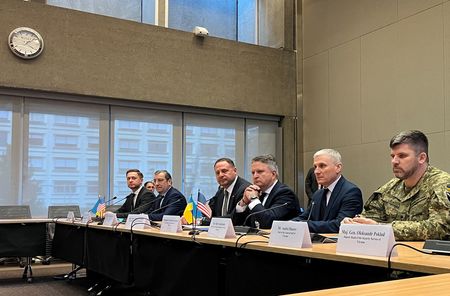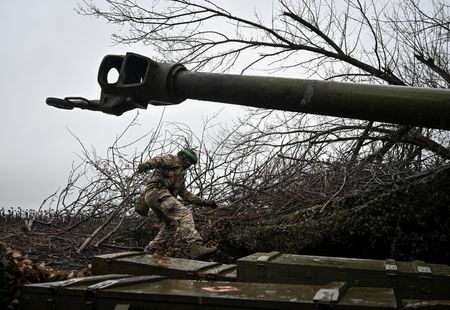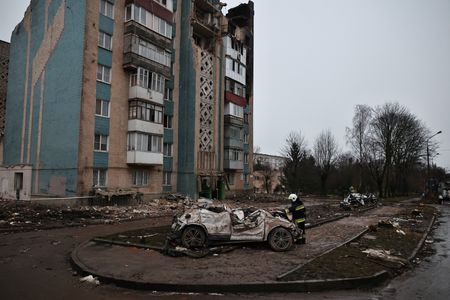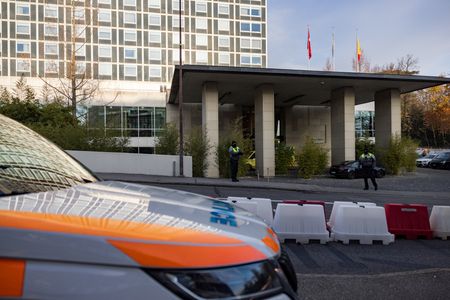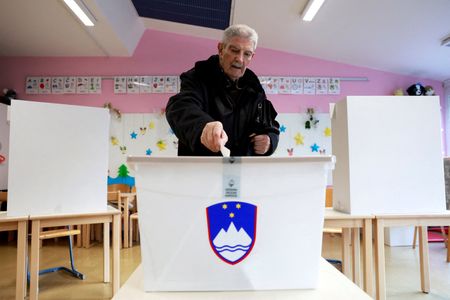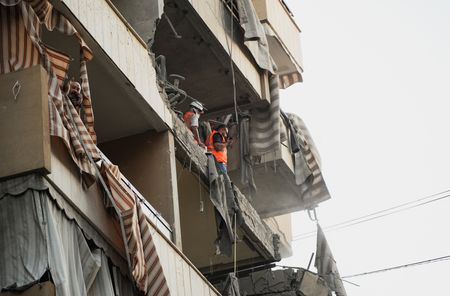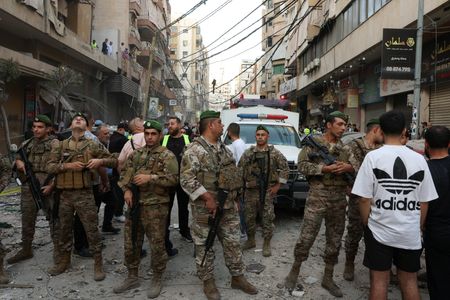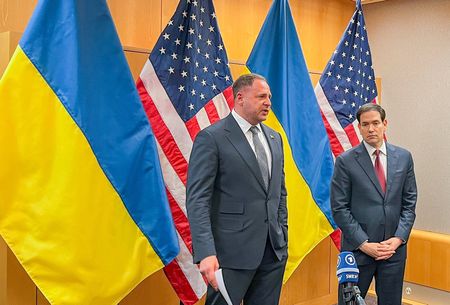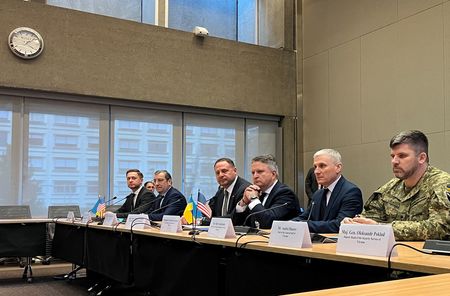By Emma Farge and Olivia Le Poidevin
GENEVA (Reuters) -The United States said it had made significant progress on crafting a plan to end the war in Ukraine during talks on Sunday but no agreement was reached on how to guarantee Kyiv’s security amid concerns about the threat posed by Russia.
U.S. Secretary of State Marco Rubio led the talks in Geneva with a high-level Ukrainian delegation after Kyiv and its allies voiced alarm about a U.S.-backed plan because of what they saw as major concessions to Russia, and pressed for changes.
Rubio said work remained to be done on questions including the role of NATO and security guarantees for Ukraine, but that his team had narrowed down unresolved issues in a 28-point peace plan for Ukraine championed by President Donald Trump.
“And we have achieved that today in a very substantial way,” Rubio told reporters at the U.S. mission in Geneva.
Earlier, Trump said Ukraine had not been grateful for American efforts over the war, prompting Ukrainian officials to stress their gratitude to the U.S. president for his support.
European officials joined the U.S. and Ukrainian delegations for talks late on Sunday after crafting a modified version of the U.S. plan for Ukraine that pushes back on proposed limits to Kyiv’s armed forces and mooted territorial concessions.
The European plan proposes that Ukraine be granted a larger military than under the U.S. plan and that talks on land swaps should start from the front line rather than a pre-determined view of which areas should be considered Russian.
On Friday, Trump said Ukrainian President Volodymyr Zelenskiy had until Thursday to approve the plan, which calls on Ukraine to cede territory, accept limits on its military and renounce ambitions to join NATO.
For many Ukrainians, including soldiers fighting on the front lines, such terms would amount to capitulation after nearly four years of fighting in Europe’s deadliest conflict since World War Two. On Saturday, Trump said the current proposal for ending the war is not his final offer.
Rubio said the United States still needed time to address the pending issues. He hoped a deal could be reached by Thursday but suggested that it could also take longer.
U.S. and Ukrainian officials were discussing the possibility of Zelenskiy travelling to the United States, maybe as early as this week, to discuss the U.S. peace plan with Trump, two sources familiar with matter said on Sunday.
The main idea is that they would discuss the most sensitive issues in the peace plan, such as the matter of territory, one of the sources said. There is no confirmed date for now, the source added.
ORIGIN OF U.S. PLAN STIRS CONTROVERSY
The main talks between U.S. and Ukrainian officials got under way in a stiff atmosphere at the U.S. mission, soon after Trump complained in a Truth Social post that Ukraine’s leadership had shown “zero gratitude” to the U.S. for its efforts and Europe continued to buy Russian oil.
Rubio interrupted the meeting to speak to reporters, saying the talks had been probably the best the U.S. had held with Ukraine since Trump returned to power.
He said changes would be made to the plan to work towards a solution that both Ukraine and the U.S. could support.
“Obviously this will ultimately have to be signed off with our presidents, although I feel very comfortable about that happening given the progress we’ve made,” said Rubio.
Andriy Yermak, head of the Ukrainian delegation, was at pains to thank Trump for his commitment to Kyiv during the brief interlude. Minutes later, Zelenskiy also thanked Trump.
Yermak did not reappear with Rubio when the talks ended.
Since the U.S. plan was announced, there has been confusion about who was involved in drawing it up. European allies said they had not been consulted.
Before heading to Geneva, Rubio insisted on X that Washington had authored the plan after remarks from some U.S. senators suggesting otherwise.
Senator Angus King said Rubio had told senators the plan was not the administration’s position, but “essentially the wish-list of the Russians.”
A PERILOUS MOMENT FOR UKRAINE
The draft U.S. plan, which includes many of Russia’s key demands and offers only vague assurances to Ukraine of “robust security guarantees”, comes at a perilous moment for Kyiv.
Russia has been making gains on parts of the front, albeit slowly and, according to Western and Ukrainian officials, the advances have been extremely costly in terms of lives lost.
The transportation hub of Pokrovsk has been partially taken by Russian forces and Ukrainian commanders say they do not have enough soldiers to prevent small, persistent incursions.
Ukraine’s power and gas facilities have been pummelled by drone and missile attacks, meaning millions of people are without water, heating and power for hours each day.
Zelenskiy himself has been under pressure domestically after a major corruption scandal broke, ensnaring some of his ministers and people in his close entourage.
He has warned that Ukraine risked losing its dignity and freedom – or Washington’s backing – over the U.S. plan.
Kyiv had taken heart in recent weeks after the United States tightened sanctions on Russia’s oil sector, the main source of funding for the war, while its own long-range drone and missile strikes have caused considerable damage to the industry.
But the draft peace plan appears to hand the diplomatic advantage back to Moscow. Ukraine relies heavily on U.S. intelligence and weapons to sustain its war against Russia.
(Reporting by Olivia Le Poidevin; additional reporting by Andreas Rinke and Julia Payne in Johannesburg, Anastasiia Malenko, Pavel Polityuk and Tom Balmforth in Kyiv, Jan Strupczewski and Andrew Gray in Brussels, Miranda Murray in Berlin, Humeyra Pamuk, Timothy Gardner and Andrea Shalal in Washington, Ismail Shakil in Ottawa; Writing by Mike Collett-White and Dave Graham; Editing by Ros Russell, William Maclean and Diane Craft)


